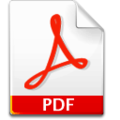©Kudough
Changing Bad Habits with a Budget
Practical advice to get everyone to budget.

Changing Bad Habits with a Budget.
Sitting down to plan a budget can be daunting unless you understand why you need to budget and how it affects your finances. HOW much money is in your wallet or purse right now? How much money did you spend yesterday? How much do you owe and to whom? If you can answer these questions, you’re doing something right but like most of us, come month end, you are probably broke and wondering where your money has gone.
Buying that car, saving for your education or your first house, isn’t that why we really work? Budgeting is about making the most of what we earn by planning where it goes every month. There are only two ways of changing our financial state and that would be to earn more or spend less, but before you go out and get a second or third job, sit yourself down and have an honest one on one with your money. You may be surprised with what you find. A budget starts with a simple list of your income (money you get paid) and your expenditure (the money you spend).
Try to be as detailed as possible, don’t just write down the big items like account payments or rent, write down what you spend your cash on too. Create “spend” categories like home, travel, food, health, savings, debt, telephone, education and entertainment. Within each category, write down how much you spend, doing this over the last two or three months will give you a better idea of your real monthly spend. Are there any surprises? When I did this the first time I was shocked at how much I was spending daily on take aways and how much I could save if I packed a lunch to work. Now take a deep breath and compare this to your income, anything left over? The first step to changing your financial situation is now complete – the reality check.
Next you need to define your financial goals, whether to reduce debt, save for a dream holiday or invest in your retirement; your goals need to be clear and achievable for them to guide your budget. Let’s say you need an extra R500 a month. Go through each of your spend categories and further break them down into essential and non-essential expenses. Essential expenditure is for food, travel, debt repayments, rent and school fees. Non essential expenses are the things we can get by without or with less of, like take aways, cigarettes, alcohol and satellite TV. Some tough decisions may need to be made so that you can free up the additional income needed.
Work out how long it will take you to achieve your goal, breaking a big financial goal into smaller bite-sized goals will make them easier to stick to and also keep you motivated. Now that you have re-prioritised your spending, you are almost done. Allow for an “other” category, as we never know what life is going to throw at us. An “other” expense category is there for those unplanned expenses. If at the end of the month you still have “other” money left, you can now use that to treat yourself, pay down debt or bulk up your savings. Be flexible. Your budget needs to change as your income, needs, wants or goals change. You may need to redo your budget a few times before it works for you, so keep at it.Chris van Rensburg is CEO of Kudough Credit solutions and has 16 years’ experience in the credit industry. He is passionate about consumer financial wellness.
BACK TO SUB CATEGORY LIST




